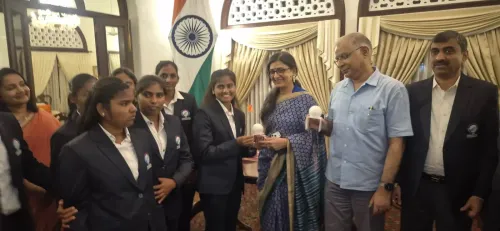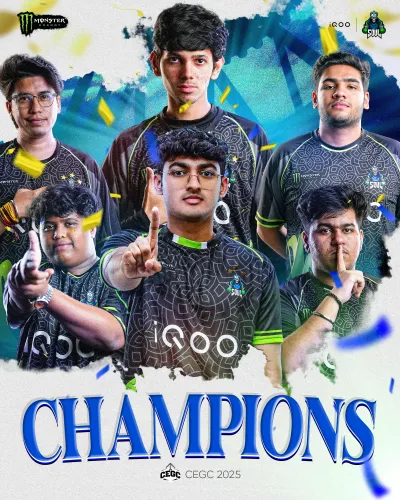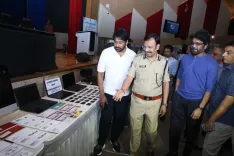Did Sana Mir's comment about 'Azad Kashmir' spark controversy?

Synopsis
Key Takeaways
- Sana Mir faced backlash for her comments about Natalia Pervaiz's hometown.
- She clarified her intentions were not to offend but to highlight challenges.
- The incident reflects the complexities of regional identities in sports.
- Social media can amplify misunderstandings swiftly.
- Commentators need to navigate sensitive topics carefully.
Colombo, Oct 3 (NationPress) The 2025 Women’s ODI Cricket World Cup match between Pakistan and Bangladesh on Thursday ignited controversy when former Pakistan captain Sana Mir referred to batter Natalia Pervaiz as being from “Kashmir,” later specifying it as “Azad Kashmir.”
The comment elicited strong reactions across social media platforms, prompting Sana to clarify her statement on her ‘X’ account. She emphasized that she did not intend to offend anyone and held no ill will.
“It’s disheartening to see how discussions are being exaggerated and how individuals in sports are facing undue stress. It’s regrettable that this situation necessitates a public clarification,” she stated.
“My reference to a Pakistan player’s hometown aimed solely to underscore the challenges she encountered coming from a specific region in Pakistan and her remarkable journey. This is part of the narrative we, as commentators, share regarding the players' backgrounds. I also mentioned this for two other players from different areas,” she added.
“Please refrain from politicizing my comments. As a commentator on the World Feed, our focus should be on the sport, the teams, and the players, while highlighting inspiring tales of resilience and determination. I harbor no malice or intention to offend anyone,” Sana expressed on ‘X’.
Sana also posted a screenshot showing Natalia’s hometown listed as Azad Kashmir on ESPNCricinfo’s profile page. In light of the backlash, the platform has since revised it to ‘Pakistan-administered Kashmir’.
“I’m including a screenshot of my research sources for players from both Pakistan and other nations. Although they have altered it now, this was the reference I made,” she concluded.
In the context of the tournament, Pakistan faced a seven-wicket defeat against Bangladesh in their opener at the R Premadasa Stadium in Colombo. The team will next challenge their arch-rivals and hosts, India, at the same venue on Sunday.









